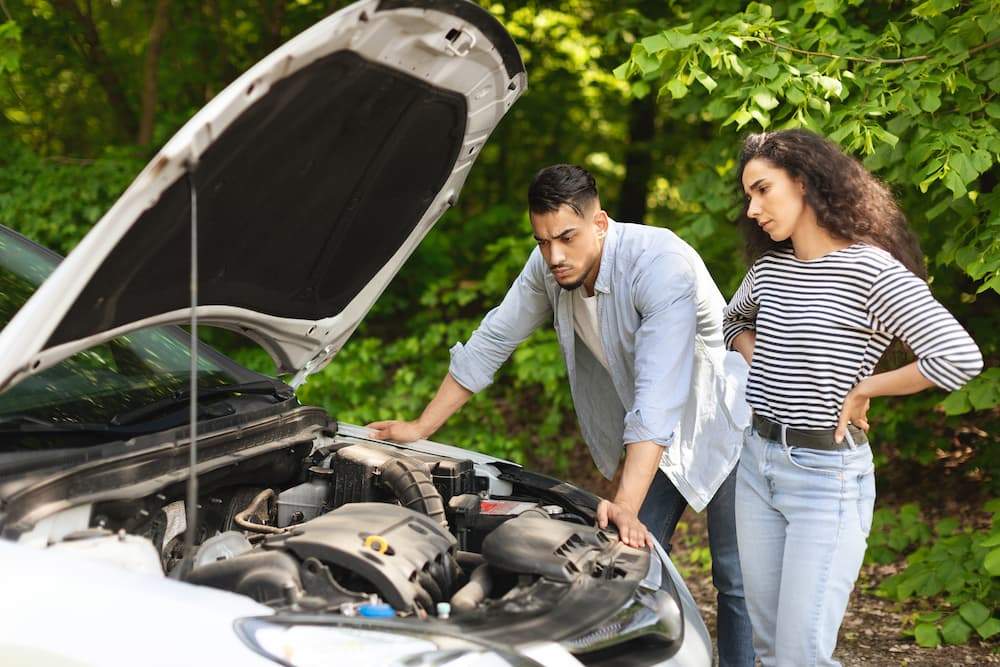What Types of Problems Are Covered by the Lemon Law in California?
Dealing with a defective vehicle can be an incredibly frustrating experience, especially when your expectations for a reliable car fall short due to persistent issues. Fortunately, lemon laws are in place to protect consumers like you. These laws ensure that you cannot deal with the burden if your vehicle is a lemon. The types of problems covered by the Lemon Law in California include various vehicle issues, from minor glitches to severe malfunctions that compromise your vehicle’s safety, function, and value.
We have extensive experience working with lemon law cases at Prestige Legal Solutions, and we understand that it can be a confusing topic for many consumers. The good news is that you don’t have to be an expert in CA regulations—our team of California lemon law attorneys has it covered. However, a basic understanding of lemon law rules can be extremely helpful for consumers wondering if they have a claim. So, you can use this practical guide to learn what types of problems are covered by the lemon law in California.
What Does Lemon Law Cover?
Lemon laws protect consumers from severely defective vehicles that fail to meet quality and performance standards. These laws apply when a new or certified pre-owned vehicle (under the original warranty) exhibits significant defects that impair its use, value, or safety and cannot be repaired after multiple attempts.
Under these laws, if your vehicle is deemed a lemon, you may be entitled to a cash settlement or California lemon law buyback from the manufacturer, depending on the specifics of your case. These laws are designed to rectify the immediate issues with your vehicle and uphold consumer rights against faulty manufacturing and poor quality control.
How Does a Car Qualify for Lemon Law Protection in California?
To qualify for lemon law protection in California, a vehicle must exhibit a substantial defect covered by the warranty that persists despite a reasonable number of repair attempts. Typically, this means that the defect:
- Substantially impairs the vehicle’s use, value, or safety.
- Has been attempted to be repaired multiple times (usually three or more) without success.
- It is still under the manufacturer’s original warranty period.
What Problems Does Lemon Law Apply To?
Lemon laws generally apply to defects that majorly impact the vehicle’s use, value, or safety. Some of the most common car problems covered by lemon law regulations are:

Engine Problems
This includes issues such as stalling, overheating, and failure to start, which can significantly hinder the vehicle’s performance.
Transmission Issues
Problems like slipping, jerking, or failing to engage properly are covered under lemon laws as they directly affect the vehicle’s drivability and safety.
Electrical Systems
Defects in electrical systems, including faulty wiring, non-functioning dashboard lights, or malfunctioning infotainment systems, can impact both the functionality and the driver’s enjoyment of the vehicle.
Safety Features
Lemon laws cover critical safety-related issues such as non-deploying airbags, faulty brakes, or malfunctioning steering components, which pose significant risks to drivers and passengers.
Structural Defects
Issues with the vehicle’s structural integrity, such as frame distortions or improper alignment, that affect the vehicle’s operation and safety are also included.
Chronic Performance Issues
Persistent problems that degrade the vehicle’s performance remain unresolved despite multiple repair attempts. This category includes recurring sensor failures or issues that result in poor fuel efficiency.
These laws ensure that if these types of defects cannot be repaired after a reasonable number of attempts, the manufacturer must offer a fair solution, which could be a refund or another form of compensation. This protection helps maintain fair consumer practices and holds manufacturers accountable for the quality of their vehicles.
Are There Limitations of Lemon Law Coverage?
There are a few limitations to the issues covered under lemon law regulations. If your car has one or more of these problems, you may not be eligible to file a claim:
- Non-substantial defects, such as minor rattles or cosmetic issues, are typically not covered.
- Problems caused by owner abuse or unauthorized modifications to the vehicle.
- Issues that do not majorly affect the vehicle’s use, value, or safety are not considered under lemon laws.
Curious if Your Car Problems are Covered by the Lemon Law? Call Our Team Today!
If you’re dealing with persistent car problems and wondering if they fall under what lemon law covers, our California lemon law attorneys at Prestige Legal Solutions are here to help. Our expertise in lemon law ensures that you get the best possible advice and representation. In addition to lemon law cases for cars and trucks, we also work with clients who have motorcycles, RVs, and other vehicle types. We have advocated for consumer rights for years, holding auto manufacturers responsible and helping our clients find the best solutions to their car troubles.
Contact us today to request a free, zero-obligation legal consultation to determine if your car is covered under California lemon law.
Image Credit: Prostock-studio / Shutterstock

